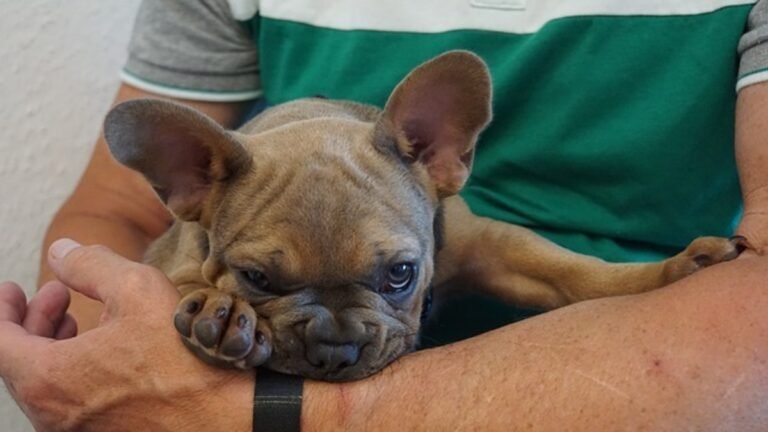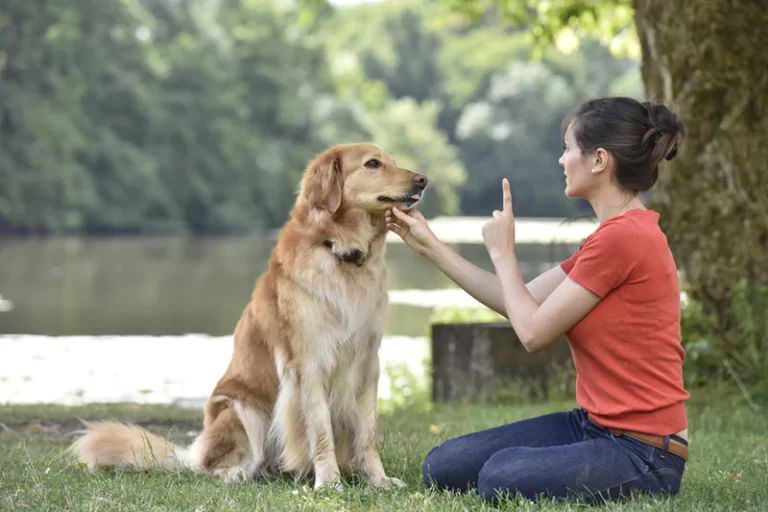Why My Dog Started To Fear The Dark
If your dog starts becoming fearful at night, it could be very worrying. Being restless at night might be natural for new puppies as they get used to new habits and circumstances. However, in older dogs, it may be caused by a covert medical condition that has to be looked into.
In either case, we need to talk about all possible reasons of nightly fear and anxiety in both puppies and senior dogs, as well as remedies that can help ease their nighttime restlessness.
Why does my dog become frightened at night?
Dogs’ nighttime uneasiness or restlessness can be brought on by a variety of factors. These causes may be related to dementia, generalised anxiety disorder, or a painful or uncomfortable underlying medical condition.
infant age
Due to changes in their surroundings or pattern, puppies and younger dogs may become restless at night. This is mostly because dogs who are accustomed to sleeping in their owners’ beds or with their mothers experience separation anxiety.
It’s normal for your puppy to act restless if they are suddenly placed in a new dog bed or a different room for bedtime. But don’t panic, this kind of nighttime restlessness frequently goes away on its own. That is, if owners do not reinforce this behaviour in an effort to calm the animal down.
a poor vision
Your dog cannot develop a “fear of the dark” without cause. It may be due to poor eyesight if your dog, regardless of age, exhibits anxious or afraid behaviour after sunset. Of course, unless you take them to the vet for an eye test, you wouldn’t know for sure.
A dog will likely be on high alert for stimuli that he would normally be accustomed with during the day when he can’t see effectively in low light. This possibility can be ruled out during a vet appointment utilising an ophthalmoscope or neurologic test.
Stress
Dogs may experience anxiety at night due to stress. Loud noises, an atmosphere that is full of stimuli, or a significant shift at home can all contribute to stress. When you move houses, bring in new kids, or introduce new pets, your dog may get anxious due to stress.
They may struggle to sleep because of these circumstances. Your dog might be too agitated to sleep if you see him pacing or shifting positions frequently. If and when he does eventually fall asleep, it can be a restless one that has an impact on his energy the following day.
Dementia
A dog’s susceptibility to aging-related health problems, such as dementia, increases with age. Like in humans, this condition is known as canine cognitive dysfunction and is a fatal illness.
Dogs with dementia may experience sleep difficulties, anxiety, disorientation, and other behavioural changes that may be mistaken for ageing symptoms. The first sign of canine dementia may be a dog that becomes frightened all of a sudden at night. This worry or panic is frequently accompanied by general uneasiness, forgetting where they are, and a mix of vision and hearing loss.
Additional medical issues
Night restlessness in senior dogs is frequently brought on by a painful underlying medical condition. In light of this, it’s crucial to speak with a veterinarian to determine whether your dog is afflicted by an ailment that hasn’t been properly diagnosed.
Why it’s important to calm your dog down at night?
Before the behaviour spirals into a lifelong phobia or terror, a dog who becomes suddenly anxious or restless at night needs to be handled. In addition, a dog who struggles to fall asleep at night or who doesn’t get enough sleep can experience other problems like lethargy and behavioural changes.
In addition, your dog will probably let you know if he is terrified at night. Because anxious dogs may growl, whine, or wail until they receive assistance from you, your dog’s worry may also be the reason of your restless night.
How to calm a nighttime dread in your dog
Seek advice from a veterinarian
A major medical issue may be the root of your fear, anxiety, or nighttime restlessness. If behavioural modification or adjustment do not help your dog’s nocturnal issue to disappear, take them to the vet for a possible health issue to be diagnosed.
Ensure your dog receives a lot of physical activity.
When it’s time for bed, a dog who has had enough play and exercise during the day is likely to be drowsy and content. They can sleep more comfortably and uninterruptedly through the night when they are sufficiently worn out but not exhausted.
Make the surroundings more pleasant.
Make sure the sleeping place for your dog is as silent and dark as it can be. Their ability to fall asleep more quickly and their likelihood of waking up in the middle of the night can both benefit from the absence of stimuli. Your dog needs a nice bed as well.
in their first year, instruct them
As far as possible, avoid allowing your dog to share your bed with you unless you intend to keep allowing it. Dogs are creatures of habit, so if you allow them to become accustomed to a certain schedule, be prepared for them to become upset if you abruptly alter it.
Train your dog to sleep in a specific location for the first year. Give them a comfortable bed, or train them to sleep in a box. They may grow to be highly accustomed to a nightly ritual. A familiar bed or crate might help reduce nocturnal fear or anxiety if you move houses or change their bedroom.
Don’t encourage bad behaviour.
When your dog starts barking in the middle of the night, you might be tempted to give them a treat. It’s crucial that you refrain from doing this, though! Rewarding their whining or barking could cause it to become a habit, which you do not want.
Instead, make an effort to reassure your dog with well-known commands like “stay” or “sit.” This can assist them reduce their anxiety and perhaps take their minds off the things that make them feel afraid. Alternately, you may leave them a toy. Some dogs find that having a familiar object around helps them sleep easier.
The heat pack and realistic-feeling throbbing heartbeat of the SmartPetLove Snuggle Puppy Behavioral Aid Toy help your dog overcome their behavioural challenges by reducing their anxiety and giving them the ultimate comfort.
if nothing else works
We advise that you discuss pharmaceutical choices with your veterinarian if changing your dog’s behaviour or retraining doesn’t help them overcome their nocturnal dread or anxiety. In some cases, drugs including SSRIs, tricyclic antidepressants, and benzodiazepines are needed to treat your dog’s condition.
Nevertheless, since human doses differ from those for animals, avoid giving your dog any medications that have not been recommended for them.
Both the pet and the owner may experience disturbed sleep as a result of nighttime dread or anxiety. Among other potential causes, this nocturnal restlessness may be brought on by pain, anxiety, or dementia. Although it typically resolves with straightforward behavioural instruction, dogs who suffer this issue may require additional care from a veterinarian or a behaviour specialist.
What to do if my dog is afraid of the dark?
If your dog is afraid of the dark, you can take several steps to help them feel more comfortable and secure. Here are some suggestions:
- Gradual Exposure:
Gradually expose your dog to the dark by increasing the amount of light and then gradually decreasing it. This helps your dog acclimate to the changing light levels without becoming overly anxious. - Use Night Lights:
Place night lights in areas where your dog spends time, especially in places like the bedroom or areas where they sleep. This provides a gentle and constant source of light that can help alleviate their fear. - Provide a Safe Space:
Create a designated safe and comfortable space for your dog, such as a cozy bed or crate. Make sure this area is well-lit, and consider leaving a night light on nearby. - Positive Associations:
Associate positive experiences with low-light conditions. For example, you can use treats or toys to create positive associations when the lights are dim. This helps your dog build positive emotions related to the dark. - Training and Desensitization:
Work on desensitizing your dog to darkness through positive reinforcement training. Gradually expose them to darker environments while rewarding calm behavior. This process should be slow and gradual to avoid overwhelming your dog. - Play Relaxing Music:
Soft, calming music or white noise can help create a soothing environment and mask any sounds that might be contributing to your dog’s fear. - Consult a Professional:
If your dog’s fear of the dark is severe and persistent, consider seeking the help of a professional dog trainer or behaviorist. They can assess the situation and provide personalized guidance and training techniques.
Remember to be patient and understanding as you work with your dog to overcome their fear. Each dog is unique, and the key is to create positive associations and a sense of security in low-light conditions.
Do dogs get scared to sleep alone?
Dogs, like humans, vary in their individual temperaments and comfort levels with being alone. Some dogs are perfectly fine sleeping alone, while others may experience anxiety or fear when separated from their owners. Factors influencing a dog’s comfort with sleeping alone include their past experiences, breed tendencies, and overall personality.
Puppies, in particular, may experience some anxiety when left alone at night, especially if they have recently been separated from their littermates and mother. It’s common for puppies to crave companionship and may feel more secure when sleeping close to their owners.
To help a dog become more comfortable sleeping alone:
- Create a Comfortable Sleeping Area:
Provide a cozy and comfortable bed or crate for your dog. Make this area inviting and associated with positive experiences. - Establish a Routine:
Dogs thrive on routines. Establishing a consistent bedtime routine can help signal to your dog that it’s time to settle down for the night. - Use Comfort Items:
Include items with your scent, such as a worn T-shirt or a blanket, in your dog’s sleeping area. This can provide comfort and reassurance. - Positive Reinforcement:
Use positive reinforcement to reward calm behavior when your dog is in their sleeping area. This can help them associate the space with positive experiences. - Gradual Independence:
If your dog is used to sleeping with you but you want them to sleep alone, make the transition gradually. Start by moving their bed or crate closer to yours and gradually move it farther away.
If your dog continues to show signs of distress or anxiety when sleeping alone, it may be helpful to consult with a veterinarian or a professional dog trainer or behaviorist. They can provide guidance and support tailored to your specific situation. Remember that every dog is unique, and what works for one may not work for another.
Why does my dog bark so much at night?
Excessive barking at night in dogs can have various causes, and understanding the underlying reasons can help address the behavior. Here are some common reasons why a dog might bark excessively at night:
- Attention-Seeking:
If your dog is used to getting attention or rewards for barking, they may continue the behavior to get your attention, especially at night when they may feel lonely. - Loneliness or Separation Anxiety:
Dogs are social animals, and they may bark if they feel lonely or anxious when left alone at night. This can be more pronounced in dogs that are prone to separation anxiety. - Environmental Stimuli:
Noises, movements, or changes in the environment, such as wildlife, passing cars, or unfamiliar sounds, can trigger a dog’s barking instinct. Dogs have heightened senses, and they may react to stimuli they perceive as a potential threat. - Territorial Behavior:
Dogs may bark at night to alert you to perceived threats or to establish and defend their territory. This behavior is often more prevalent in breeds with strong guarding instincts. - Lack of Exercise:
Dogs need physical and mental stimulation, and a lack of exercise during the day can lead to restlessness and excessive barking at night. Ensure your dog gets enough physical and mental activity during waking hours. - Medical Issues:
Pain or discomfort due to underlying medical issues, such as arthritis or dental problems, can contribute to restlessness and nighttime barking. - Inadequate Training:
If a dog hasn’t been trained to be quiet on command or if they haven’t learned appropriate behaviors, they may resort to barking as a default response.
To address excessive barking at night, consider the following:
- Ensure your dog has enough physical and mental stimulation during the day.
- Establish a consistent bedtime routine to signal that it’s time to settle down.
- Create a comfortable and secure sleeping environment.
- Use positive reinforcement to reward quiet behavior.
- Consider providing a special toy or treat that keeps your dog occupied.
If the barking persists or if you suspect underlying issues, it’s advisable to consult with a veterinarian or a professional dog trainer to identify the specific cause and develop a tailored solution.
Should I ignore my dog whining at night?
Whether to ignore your dog’s whining at night depends on the underlying cause of the behavior. Whining can be a way for a dog to communicate various needs or feelings, and understanding the reason behind it can guide your response. Here are some common reasons for a dog whining at night and how to address them:
- Attention-Seeking:
If your dog is whining for attention, it’s essential not to reinforce the behavior by responding immediately. Ignoring the whining and waiting for a moment of quiet before providing attention can teach your dog that whining is not an effective way to get what they want. - Loneliness or Anxiety:
Whining can be a sign of loneliness or anxiety, especially if your dog is left alone at night. In such cases, ignoring the whining may not be the best approach. Instead, consider providing comforting items, such as a piece of your clothing, a special toy, or even a crate, to create a more secure environment. Gradual desensitization to being alone and positive reinforcement for calm behavior can also be helpful. - Medical Issues:
If your dog’s whining seems out of character or if you suspect they might be in pain or discomfort, it’s crucial to rule out any underlying medical issues. Consult with your veterinarian if you have concerns about your dog’s health. - Need for Bathroom Break:
Puppies and elderly dogs, in particular, may whine at night if they need to go outside for a bathroom break. In this case, it’s essential to respond to their needs promptly. - Hunger or Thirst:
If your dog is hungry or thirsty, addressing these basic needs may help alleviate whining.
Remember that consistency is key when addressing behavioral issues. If you decide to ignore the whining, be patient and consistent in your approach. If the whining persists or if you’re uncertain about the cause, seeking guidance from a professional dog trainer or behaviorist can be beneficial.
What age do dogs stop crying at night?
The age at which dogs stop crying at night can vary widely depending on the individual dog, its breed, and its previous experiences. Puppies are more likely to cry at night, especially when they are first separated from their littermates and introduced to a new home. This behavior is normal and usually diminishes as the puppy becomes more accustomed to its new environment.
Here are some general guidelines based on age:
- Puppies: Most puppies will cry at night during the first few nights or weeks in a new home. This is a natural response to the unfamiliar surroundings and the absence of their mother and littermates. As puppies grow and become more secure in their new environment, the crying tends to decrease.
- Adolescent and Adult Dogs: As dogs mature, they typically become more independent and accustomed to their routine. While some dogs may continue to cry or whine if they feel anxious or have specific needs, it is less common for well-adjusted adult dogs to cry excessively at night.
It’s important to note that individual variations exist, and certain factors can influence a dog’s behavior, such as:
- Breed: Some breeds are more vocal or prone to separation anxiety than others.
- Training: Dogs that receive consistent and positive training are more likely to develop good behaviors, including settling down at night.
- Health: If a dog is in pain or discomfort due to an underlying health issue, they may vocalize more, including at night.
If your dog continues to cry at night beyond the initial adjustment period or if there are sudden changes in behavior, it’s a good idea to consult with a veterinarian. They can help rule out any potential health issues and provide guidance on behavior modification if necessary. Additionally, seeking advice from a professional dog trainer or behaviorist can be beneficial in addressing specific behavioral concerns.
Is it OK to let your dog cry at night?
Whether it’s okay to let your dog cry at night depends on the context and the reason behind the crying. In some cases, it might be a normal part of a dog’s adjustment to a new environment, while in other situations, it could be a sign of distress or anxiety. Here are some considerations:
- Puppy Adjustment Period:
Puppies often cry at night, especially during the first few nights in a new home. This behavior is natural as they adjust to the unfamiliar surroundings and the absence of their mother and littermates. In such cases, it is generally acceptable to let them cry for short periods as they learn to self-soothe and adapt. - Attention-Seeking Behavior:
If your dog is crying for attention or to get a reaction from you, it’s important not to reinforce the behavior by responding immediately. Ignoring attention-seeking cries can help teach your dog that crying is not an effective way to get what they want. - Separation Anxiety:
If your dog’s crying at night is persistent and accompanied by signs of distress, it may be a symptom of separation anxiety. In such cases, it’s crucial to address the underlying anxiety through training, desensitization, and creating a comforting environment. - Physical Needs:
Sometimes, crying at night may indicate physical needs, such as the need for a bathroom break, hunger, or thirst. It’s essential to ensure that your dog’s basic needs are met before expecting them to settle down. - Health Issues:
If your dog’s crying is unusual or if there are sudden changes in behavior, it’s important to rule out any potential health issues. Pain or discomfort could be causing the distress, and a visit to the veterinarian may be necessary.
Ultimately, the goal is to create a positive and secure environment for your dog. If your dog’s crying is persistent, it’s advisable to seek guidance from a veterinarian or a professional dog trainer or behaviorist. They can help determine the cause of the crying and provide appropriate strategies to address the behavior while ensuring your dog’s well-being.









